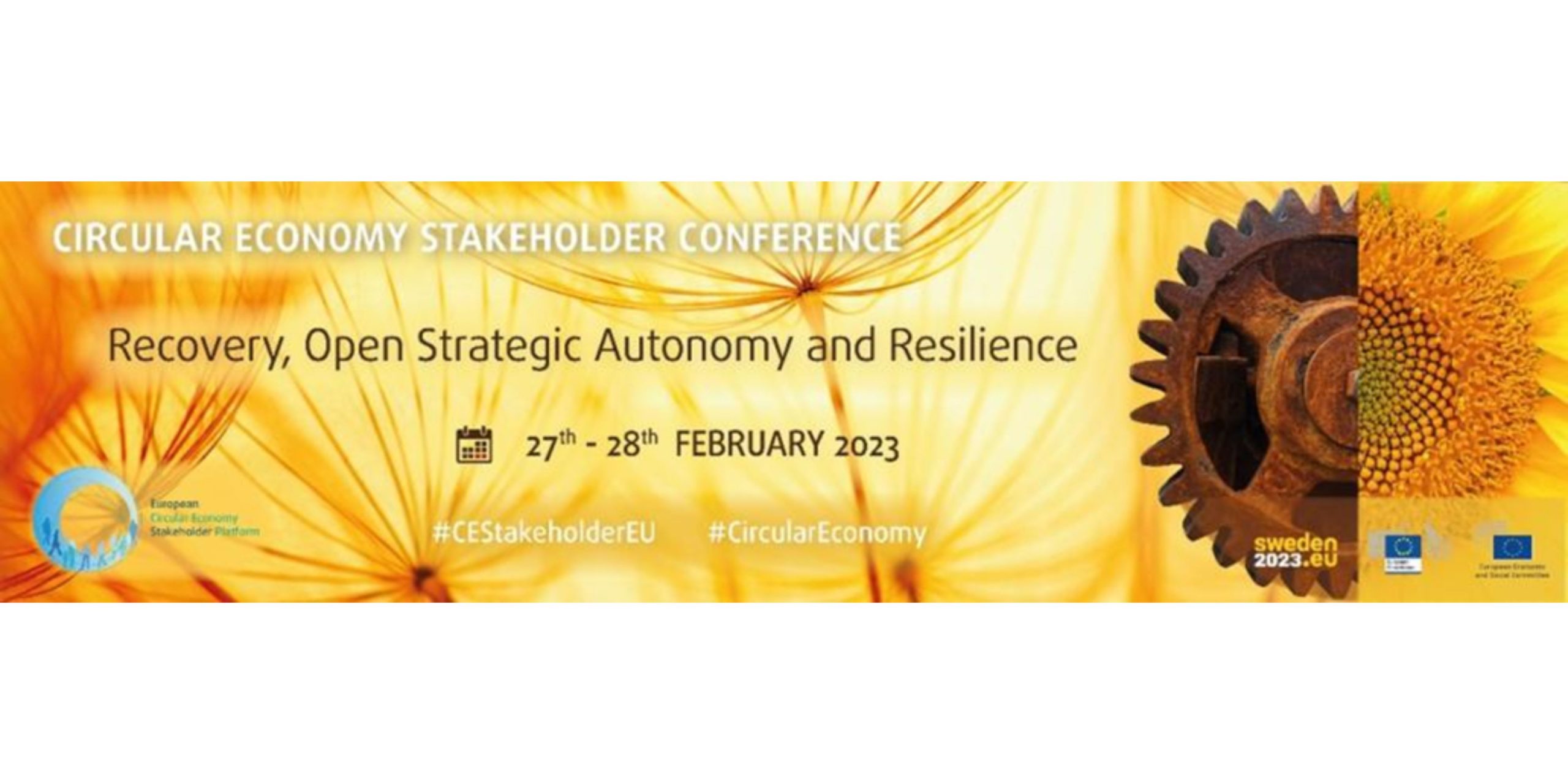On 27 and 28 February 2023, the European Commission and the European Economic and Social Committee hosted the sixth edition of the Circular Economy Stakeholder Conference, with the support of the Swedish Presidency of the Council of the EU. This year’s event presented the circular economy as a central element for resource independence and resilience and keeping policy objectives linked to sustainable consumption and production. At the conference, stakeholders from the European circular economy community exchanged views and follow discussions on the role of circular economy in the current geopolitical climate and the EU’s competitive recovery from the ongoing crises.
Day 1 of the conference, hosted by the European Commission, focused on recent policy developments, and took stock of the initiatives currently under negotiation. Sessions explored the potential of the circular economy, showcased best practices at the local level and discussed the role of the circular economy in taking forward the ambition of the European Green Deal.
Day 2 of the conference, hosted by the European Economic and Social Committee, took on a cross-cutting approach to the circular economy, highlighting how various sectors are interconnected, with a particular focus on biodiversity and climate change.
Background
As part of the European Green Deal, in March 2020 the Commission adopted the new Circular Economy Action Plan, aiming to reduce the EU’s consumption footprint and double the EU’s circular material use rate in the coming decade, while boosting economic growth. It announces initiatives for the entire life cycle of products, from design and manufacturing to consumption, repair, reuse, recycling, and resources back into the economy.
Circular economy principles allow for sustainable development by decoupling economic growth from resource use and environmental impact. The principles of ‘do no harm’ and ‘build back better’ are in line with the circular economy, as they contribute to economic and social resilience as well as to the green and digital transition.
Source: European Commission I Environnent (https://bit.ly/3xXmFU6)
